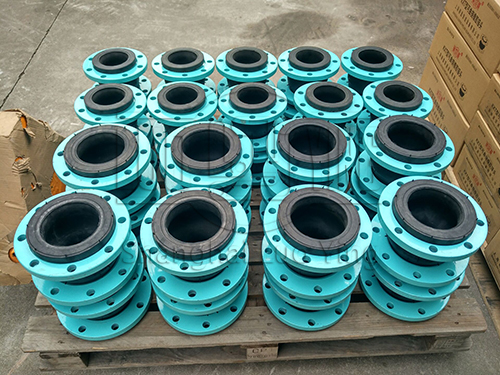Material Selection for Rubber Flexible Joints
Aug-25-28
The material composition of rubber expansion joints is a matter of concern for many clients, with numerous customers uncertain about the appropriate rubber material for their applications. We shall now analyse the materials used in rubber expansion joints, which are generally categorised into natural rubber and synthetic rubber. Which material is suitable for clients' use? These two materials correspond to distinct operational conditions. While a few varieties of synthetic rubber exhibit properties similar to natural rubber, their common defining characteristic is high elasticity; they typically require vulcanisation processing to achieve practicality and utility. When procuring rubber expansion joints, one should first select the appropriate material based on the specific operating environment, namely the medium involved. Subsequently, technical parameters such as nominal diameter and pressure rating must be considered. Only by choosing the correct product can the performance characteristics of the rubber expansion joint be guaranteed, thereby achieving the desired operational outcome. This ensures smooth pipeline operation and extends the service life of pipes, pumps, and valves.Advantages of various materials:
1. Rubber expansion joints exhibit resistance to weathering and ozone degradation. For instance, prolonged outdoor exposure or harsh environmental conditions may cause damage (ageing) to single-ball rubber joints. Special-material single-ball rubber joints manufactured by Shanghai Luoying not only withstand adverse environments but also exhibit climate resistance, ageing resistance, and ozone resistance.
2. Rubber joints possess excellent mechanical properties: Single-ball rubber joints demonstrate superior physical and mechanical characteristics. Shanghai Luoying's single-ball rubber joints sustain minimal damage even after prolonged use. With proper maintenance, their service life is significantly extended.
3. Application scope of single-ball rubber joints:
Owing to their resistance to high temperatures, oils, high vacuum conditions, acids, alkalis, and various chemicals, single-ball rubber joints are widely employed across automotive, shipbuilding, chemical, petroleum, telecommunications, instrumentation, and mechanical engineering sectors.
4. Single-ball rubber joints offer advantages including vibration reduction, noise suppression, and ease of use. For instance, they mitigate substantial vibrations and noise generated during pipeline operation. Our single-ball rubber joints effectively diminish such disturbances and are exceptionally user-friendly, requiring only connection to the pipeline.


